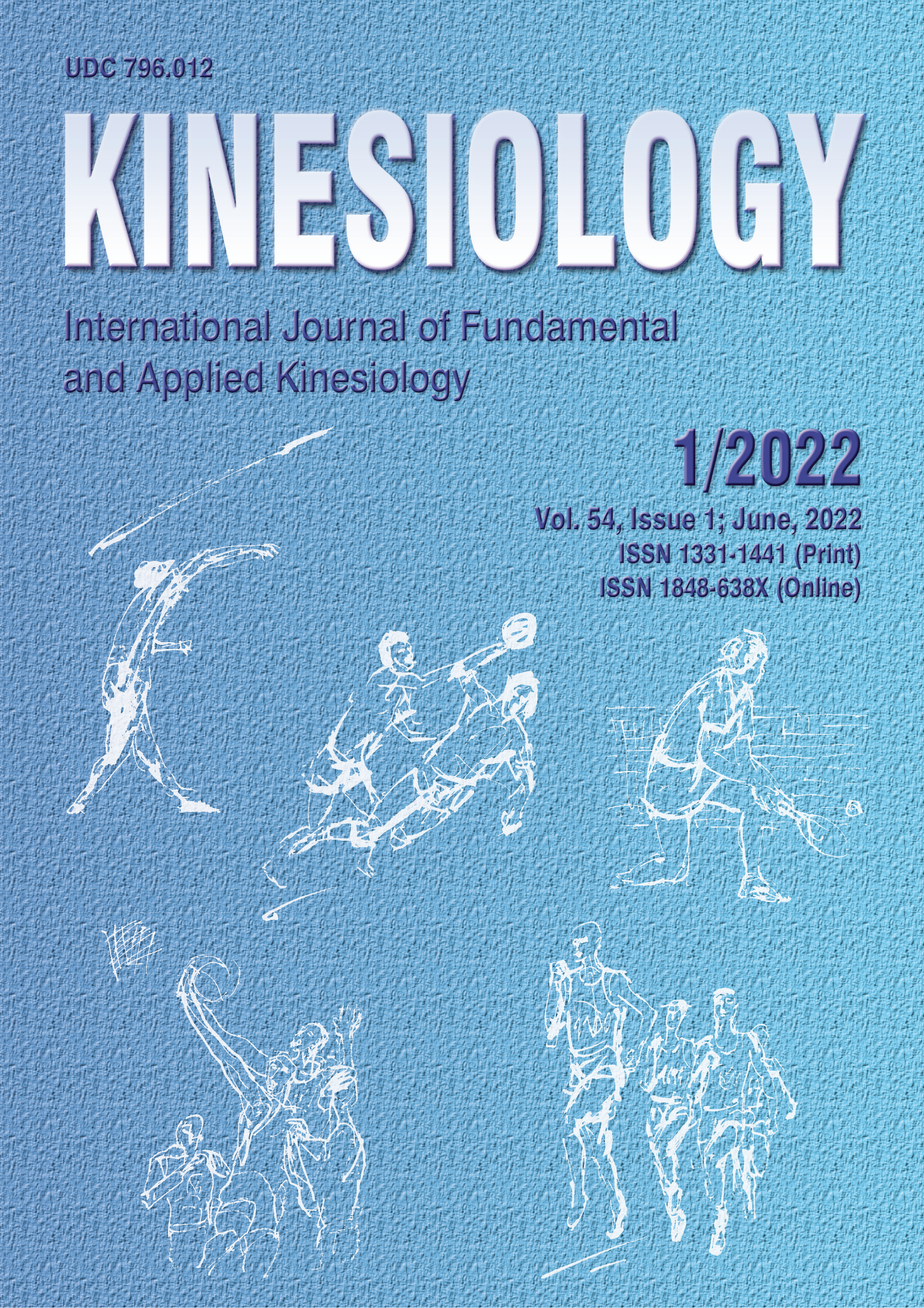RELATIONSHIPS BETWEEN PERSONALITY TRAITS AND PERCEPTION OF TACTICAL KNOWLEDGE IN BRAZILIAN FEMALE FIELD HOCKEY PLAYERS
Abstract
The present study aimed to investigate the relationships between personality traits and tactical knowledge of field hockey players. The sample consisted of 53 Brazilian female field hockey athletes. The collection instruments were the Big Five Personality Factors Inventory, the Self-Assessment Inventory of Tactical Skills in Collective Sports Games, and a sociodemographic questionnaire. The data were treated according to descriptive and correlational statistics. Percentage values were calculated when the variables showed significant differences. The normality and homogeneity of the data were verified by the Shapiro-Wilk and Levene tests, respectively. The partial correlation test, controlled by the position of the players, was used to analyze associations between the variables. A one-way ANOVA was applied to compare participants’ age and practice time with their field positions. The Kruskal-Wallis test was used to compare the positions of the players. The value of p<.05 was adopted for statistical significance. As a result, a moderate positive correlation was obtained between practice time and age; a moderate negative correlation of Neuroticism with age and practice time; moderate positive correlations between practice time and declarative and procedural knowledge. The Openness exhibited moderate positive correlations with declarative and procedural knowledge. The midfield players had higher scores in Extraversion when compared to the defensive players. In Agreeableness, the midfield players had higher scores when compared to defense and attack. The study allowed concluding that Openness was associated with the tactical knowledge domain.
Key words: sports, learning, tactical performance, sports psychology, personality, athletes
Downloads
Published
How to Cite
Issue
Section
License

This work is licensed under a Creative Commons Attribution-NonCommercial 4.0 International License.
At Faculty of Kinesiology we recognize that access to quality research is vital to the scientific community and beyond. Kinesiology is non-profit journal and all costs of publishing and peer review process are covered by the publisher itself or other funding sources like Ministry of Science and Education of the Republic of Croatia. Full text papers are also available free of charge at http://hrcak.srce.hr/kineziologija. There are no restrictions on self archiving of any form of paper (preprint, postprint and publisher's version).
Articles are distributed under the terms of the CC BY - NC 4.0
Kinesiology does not charge any fees to authors to submit or publish articles in our journal.


